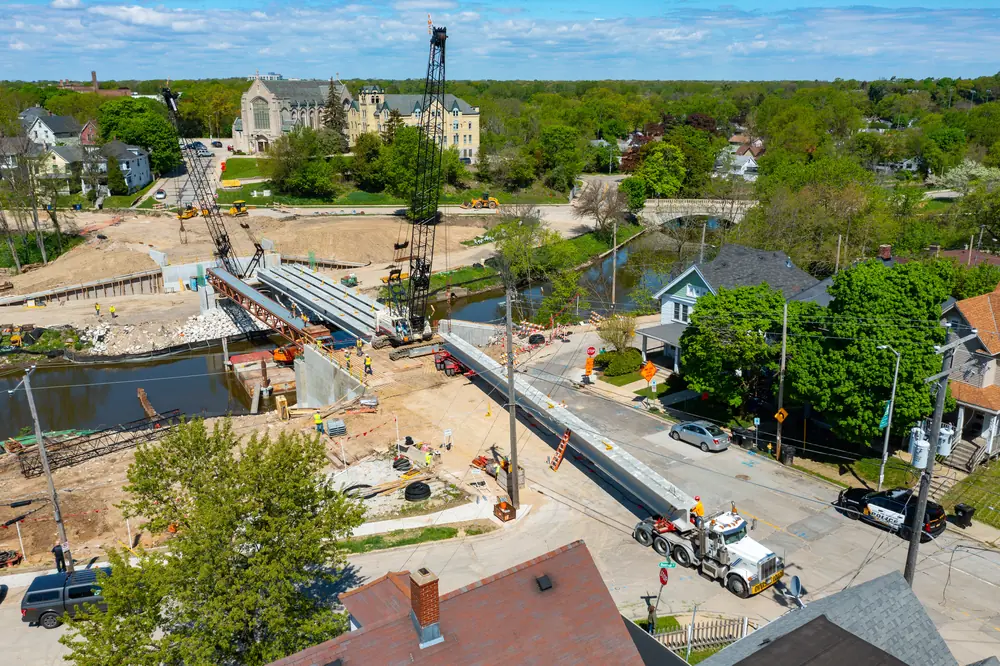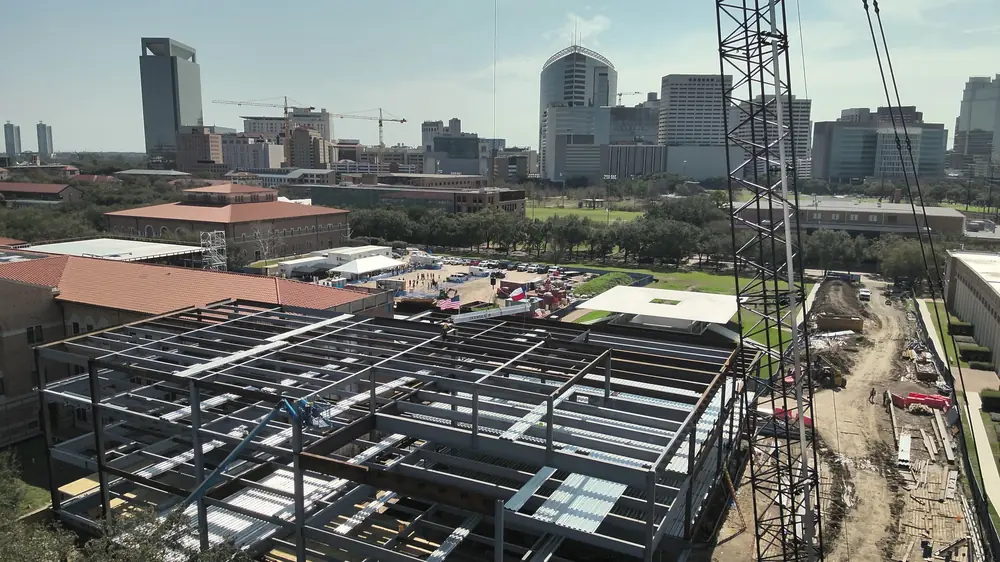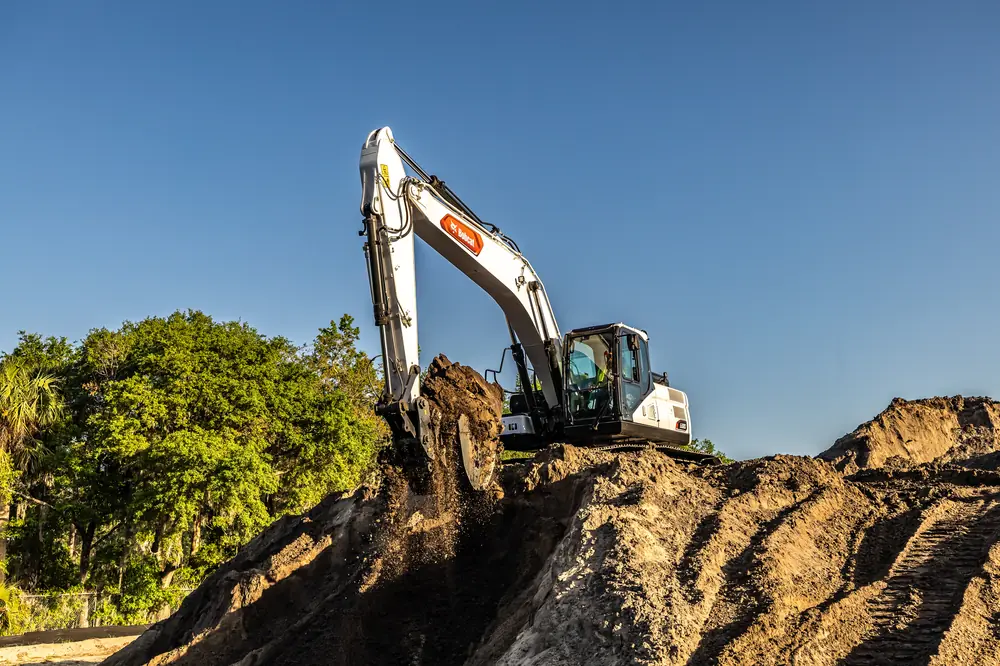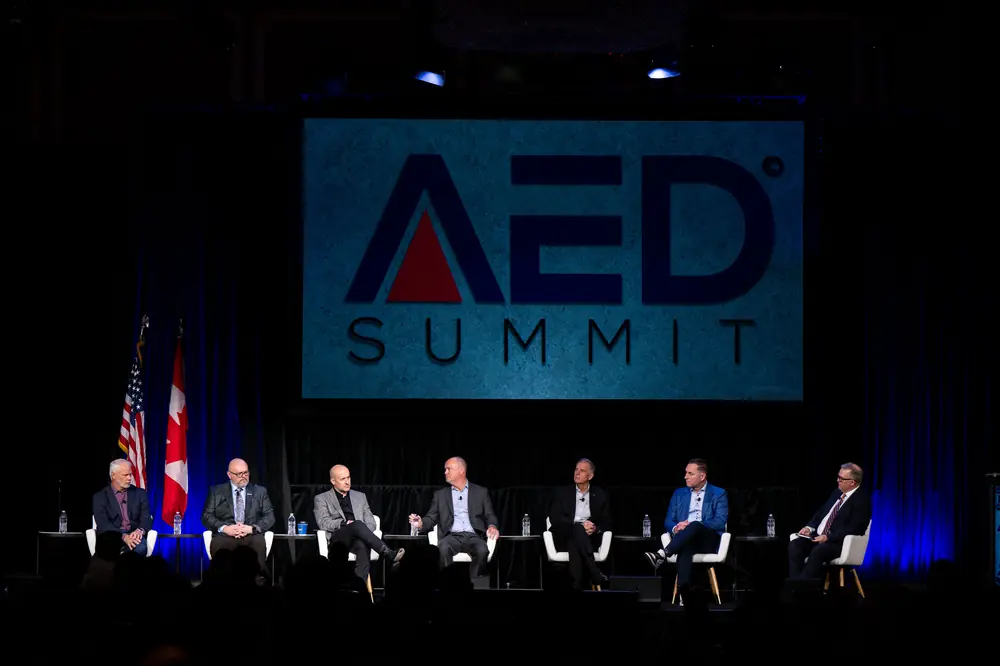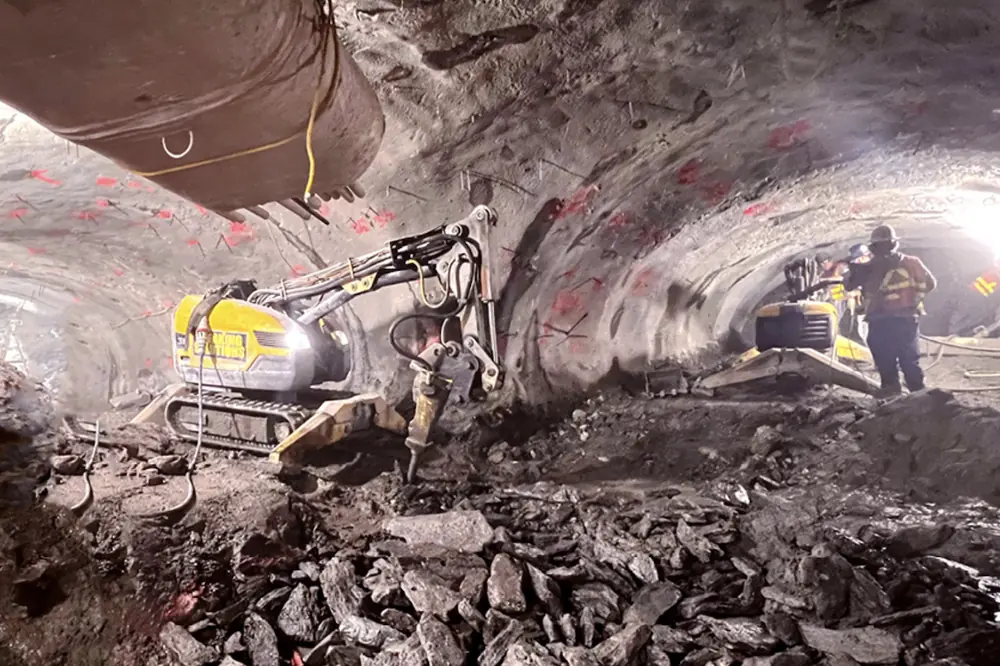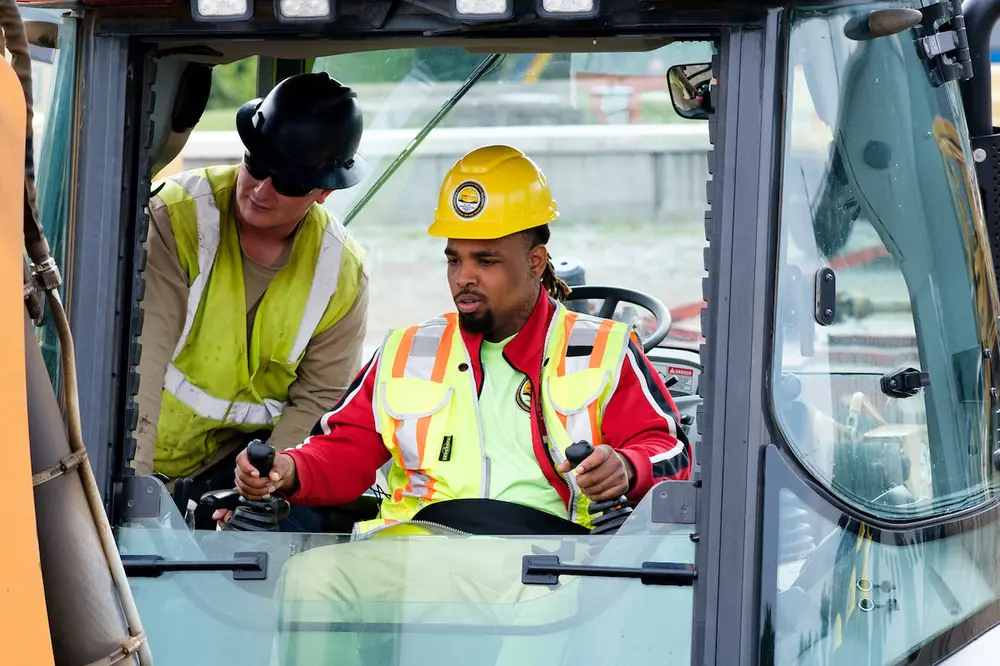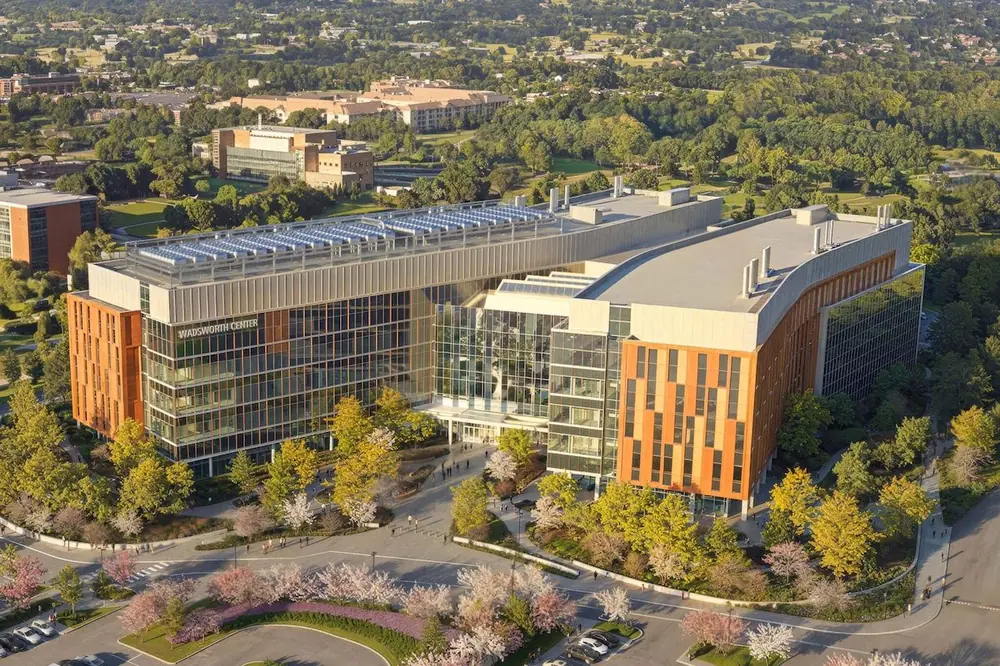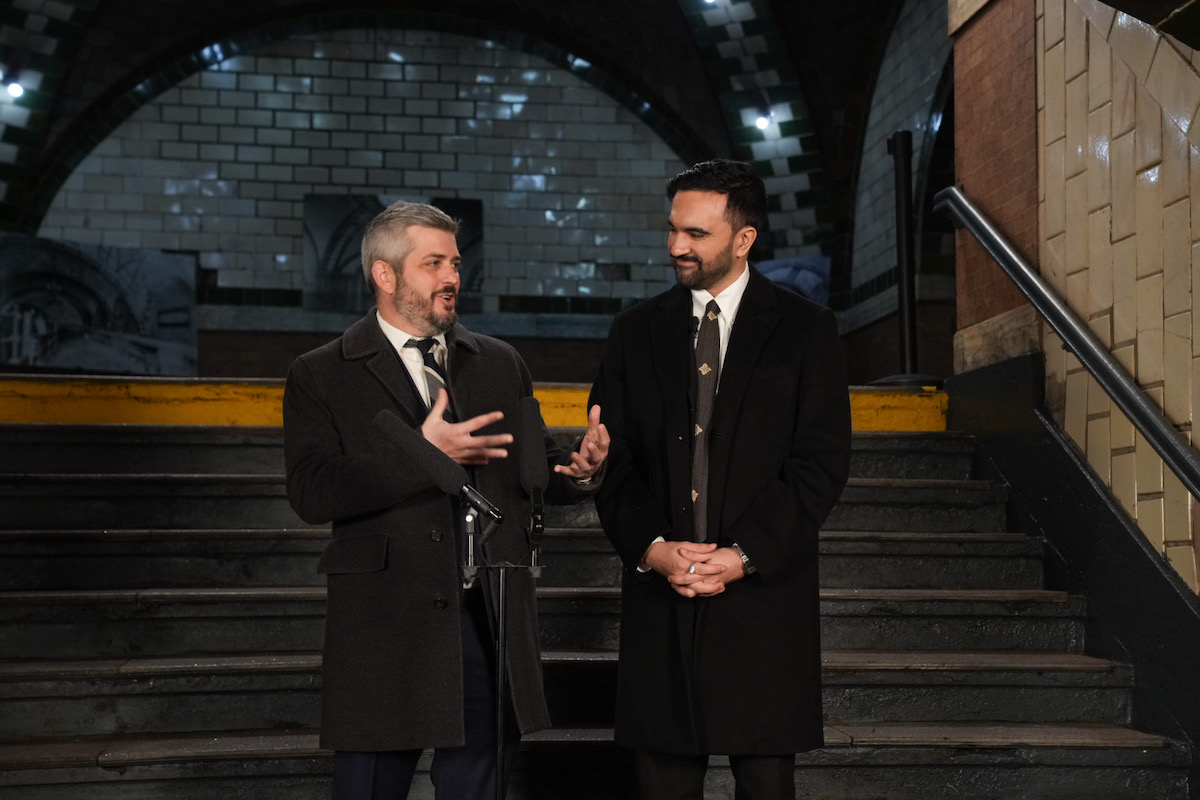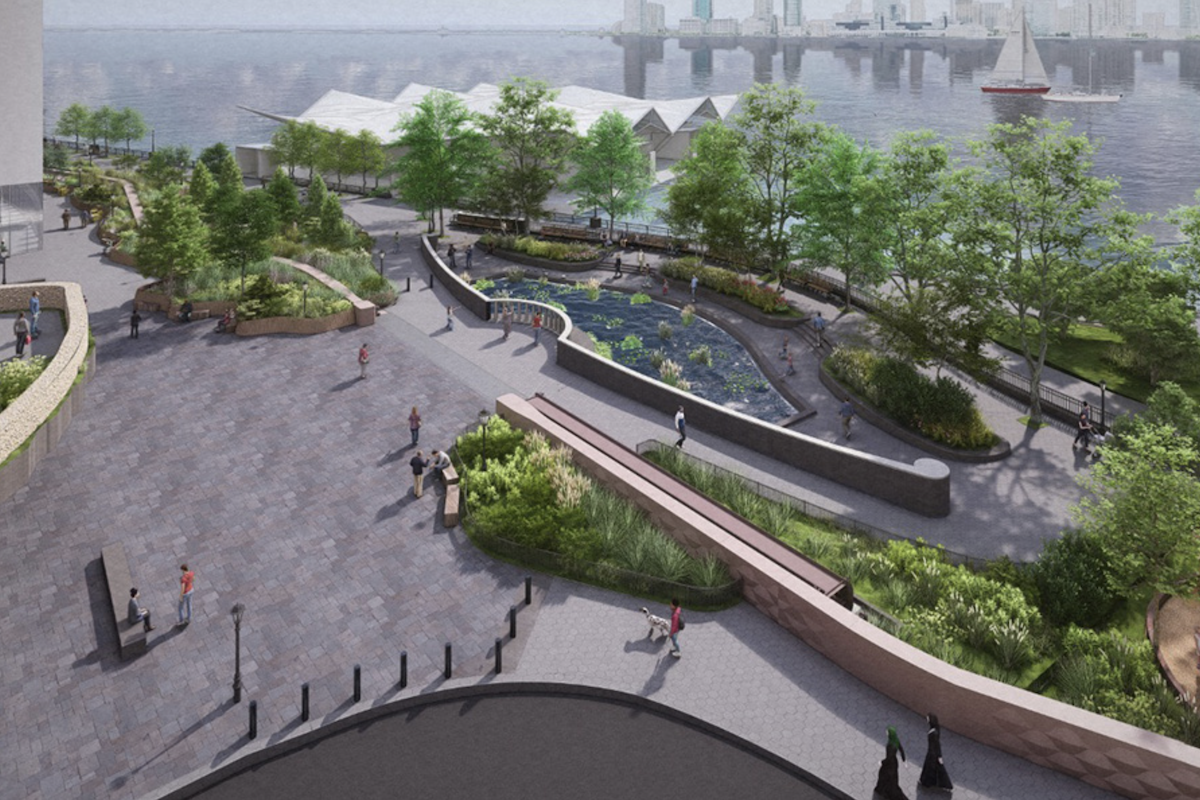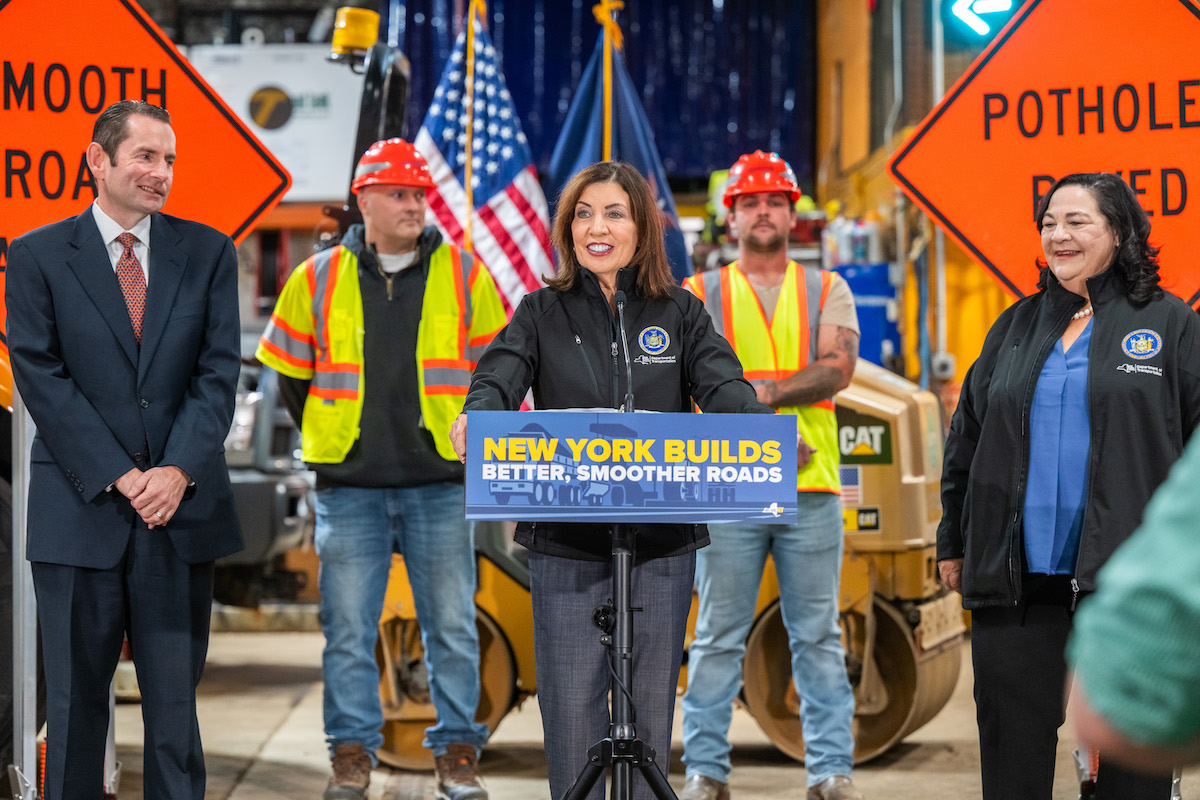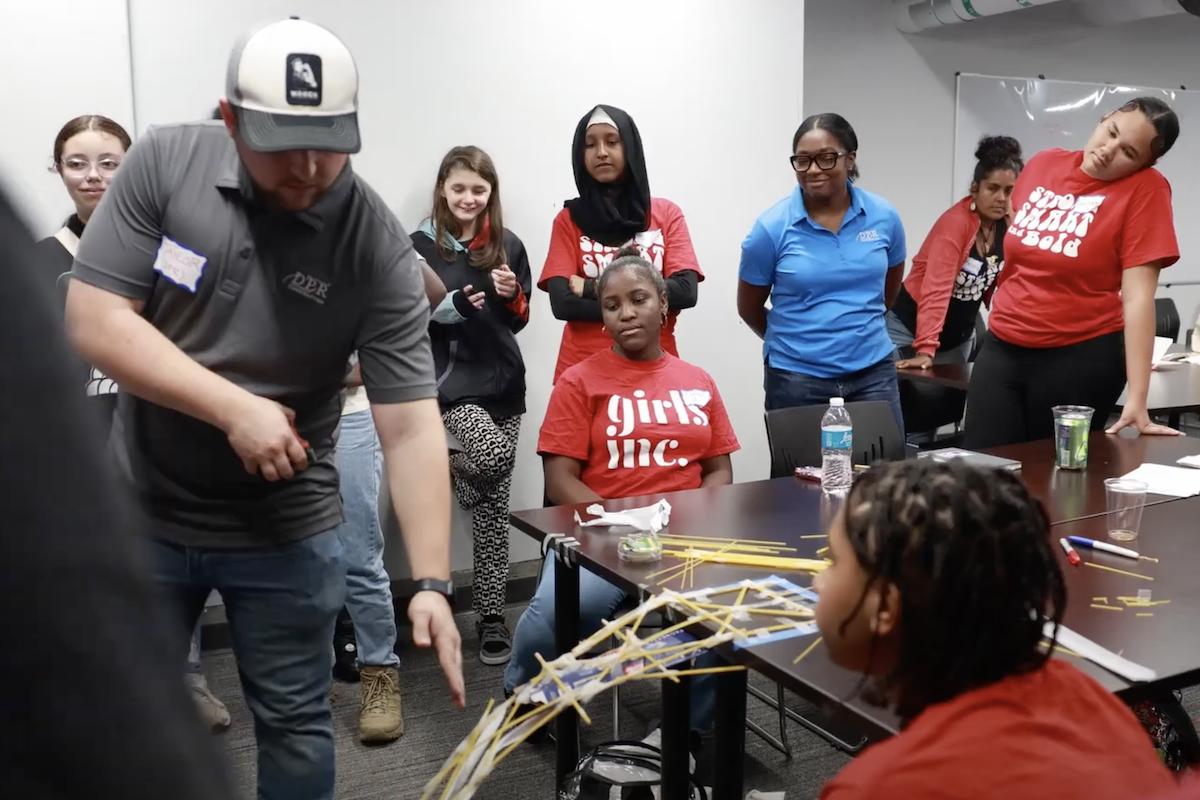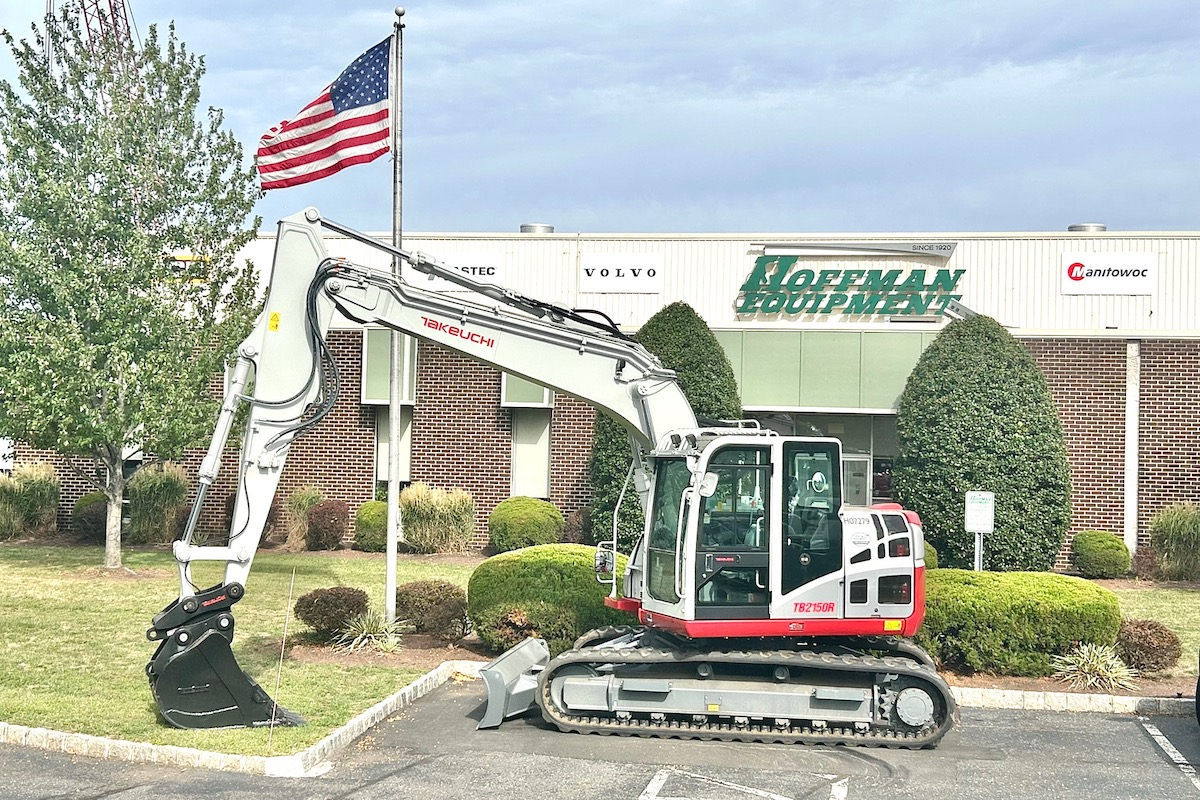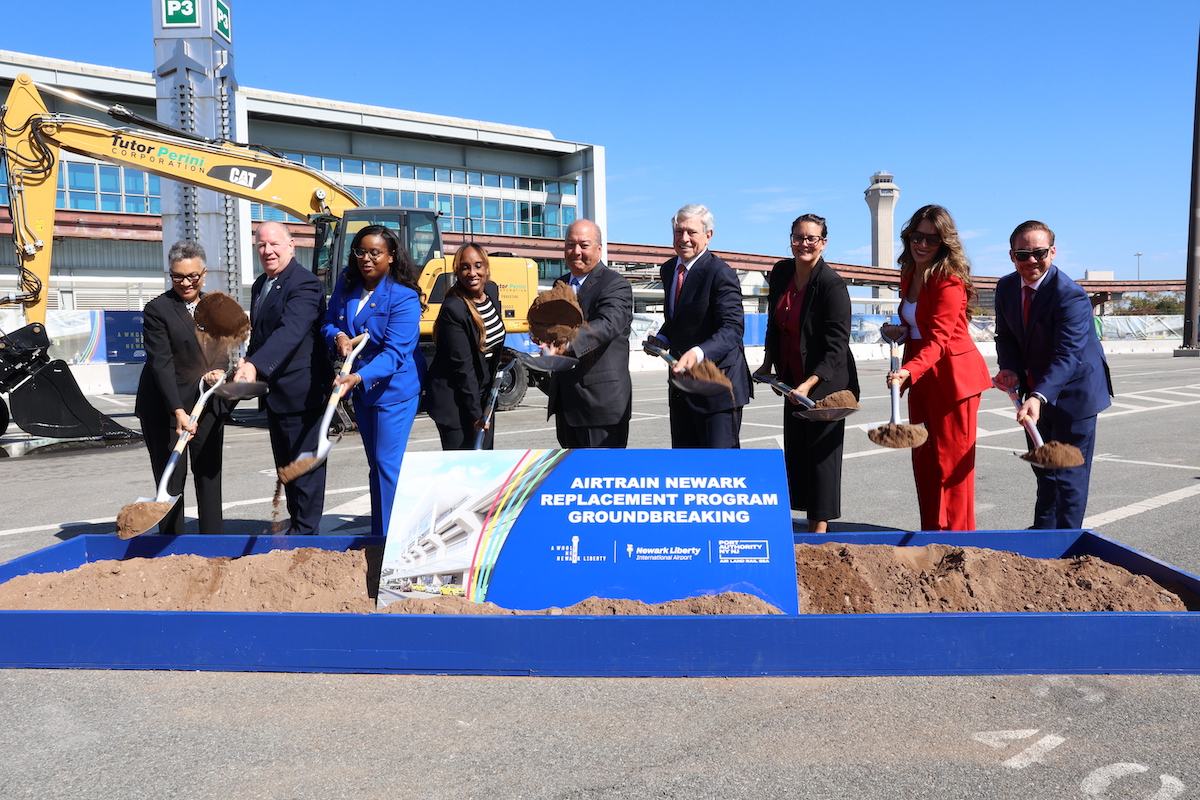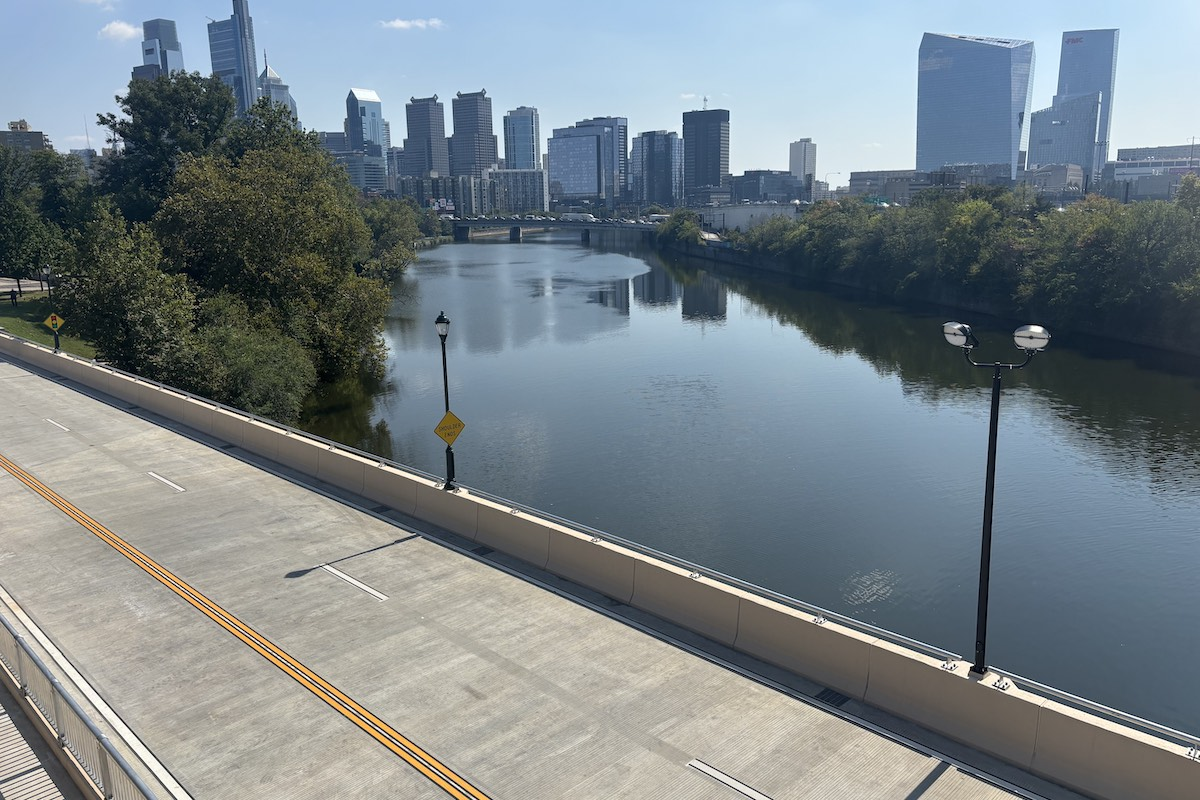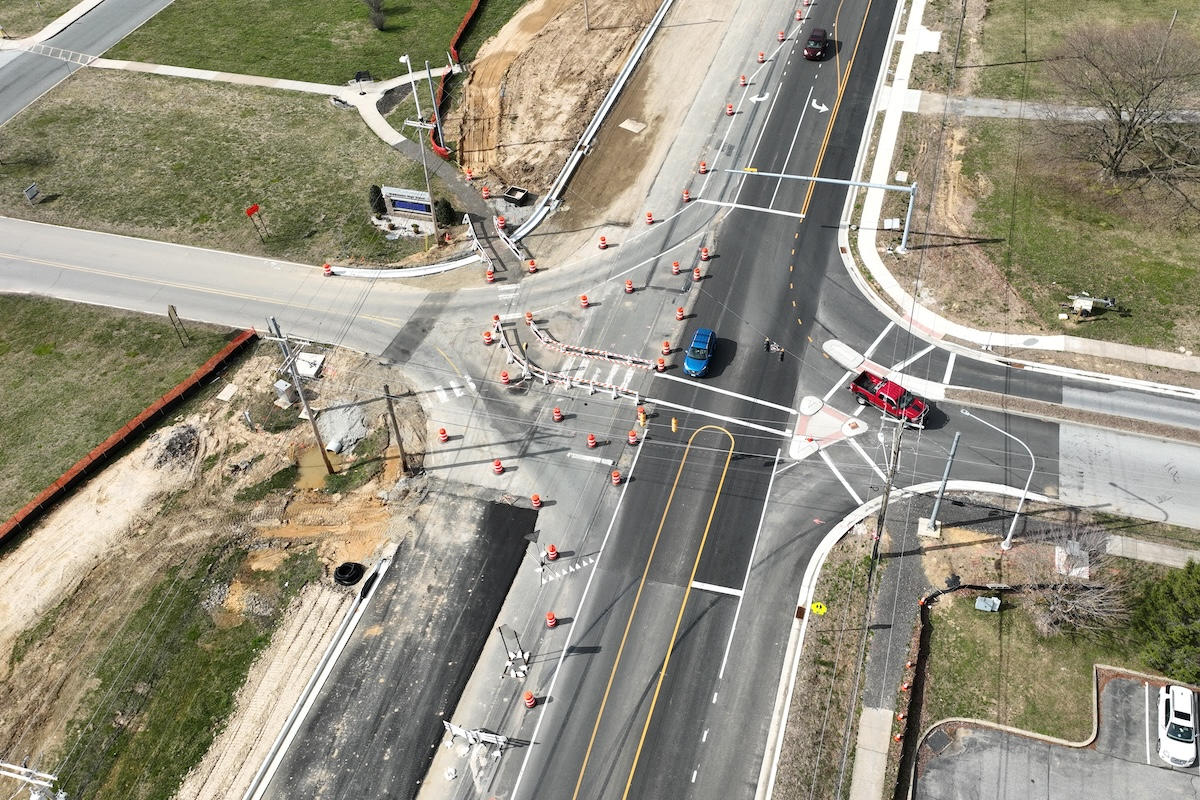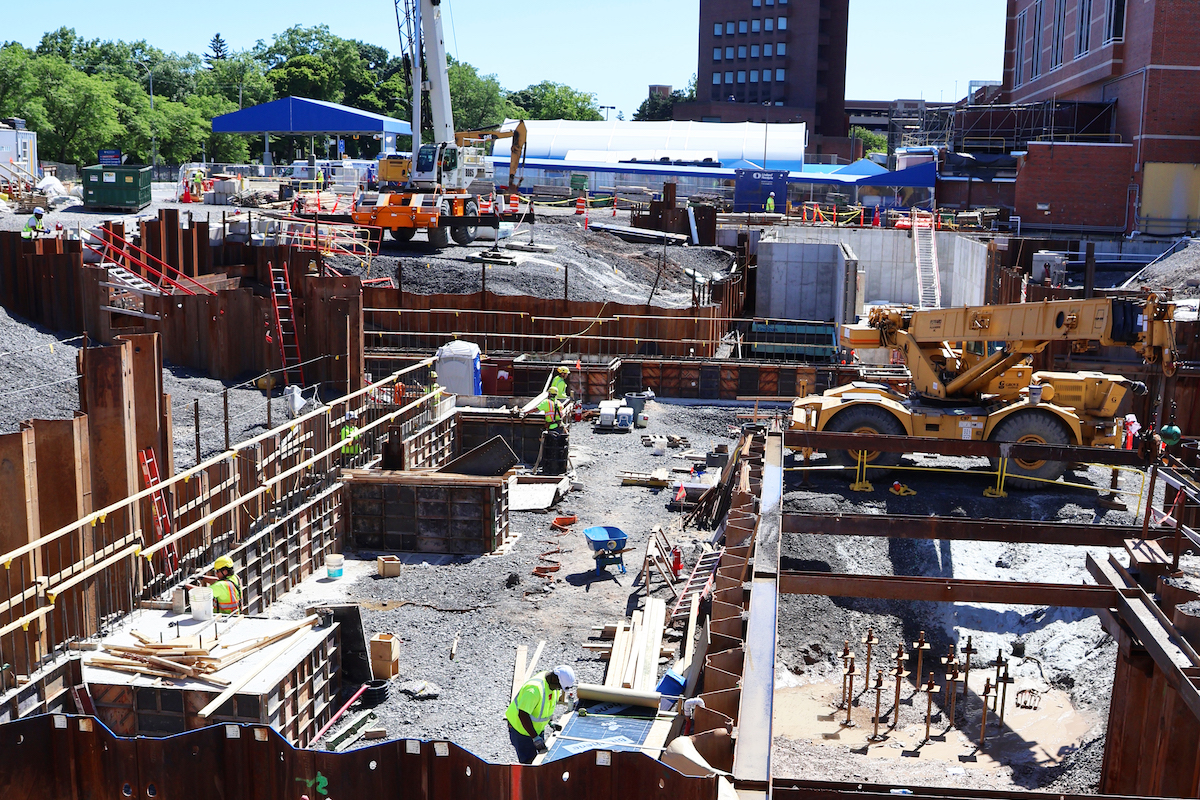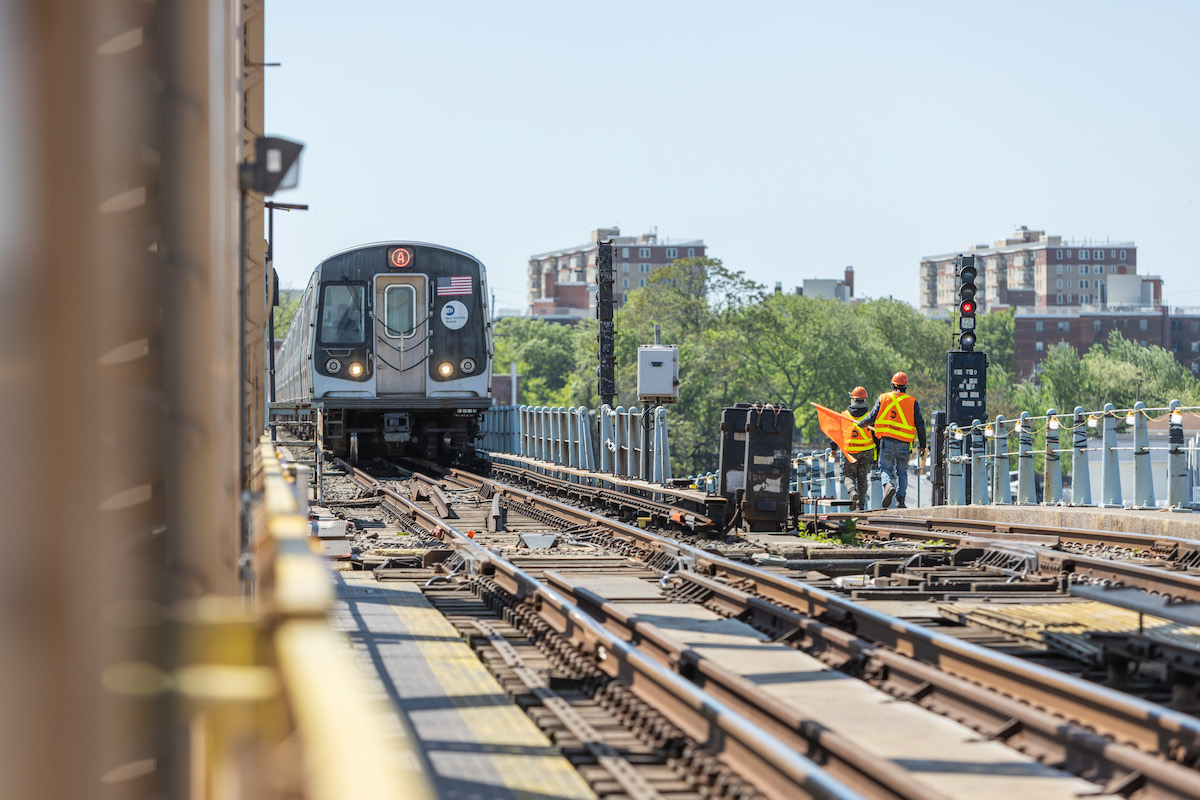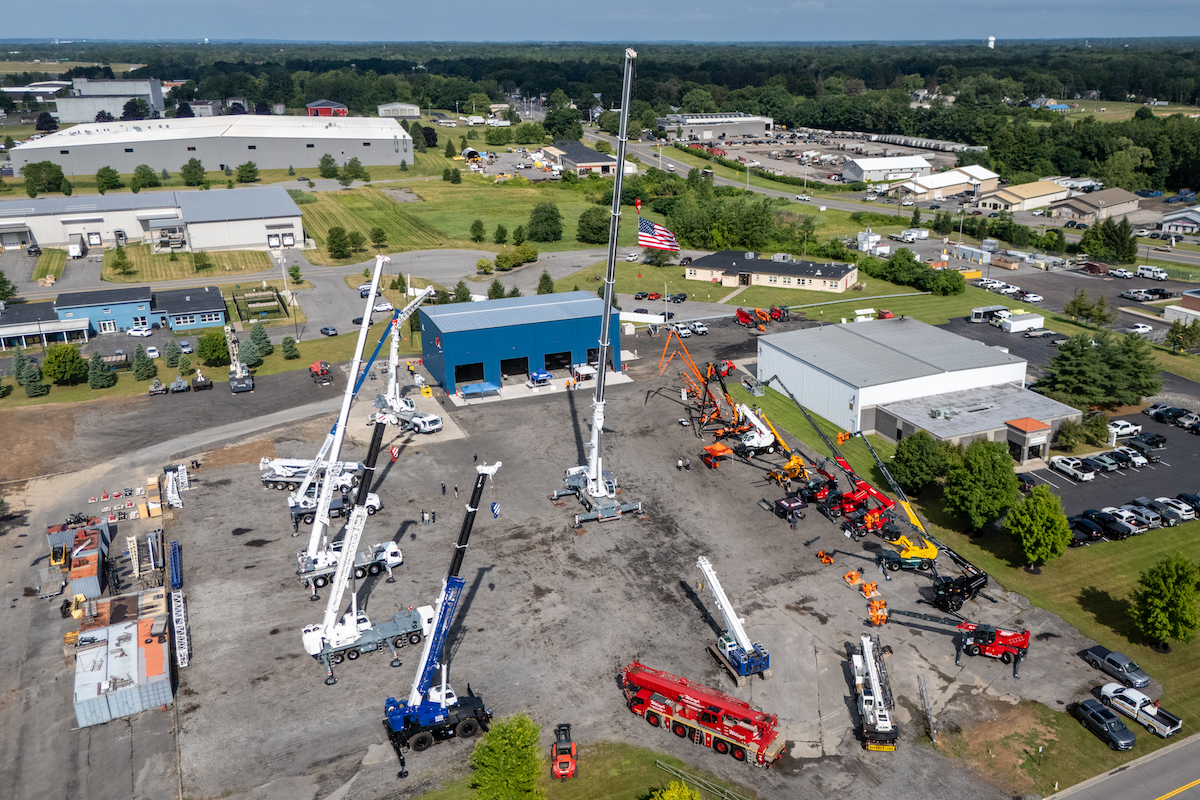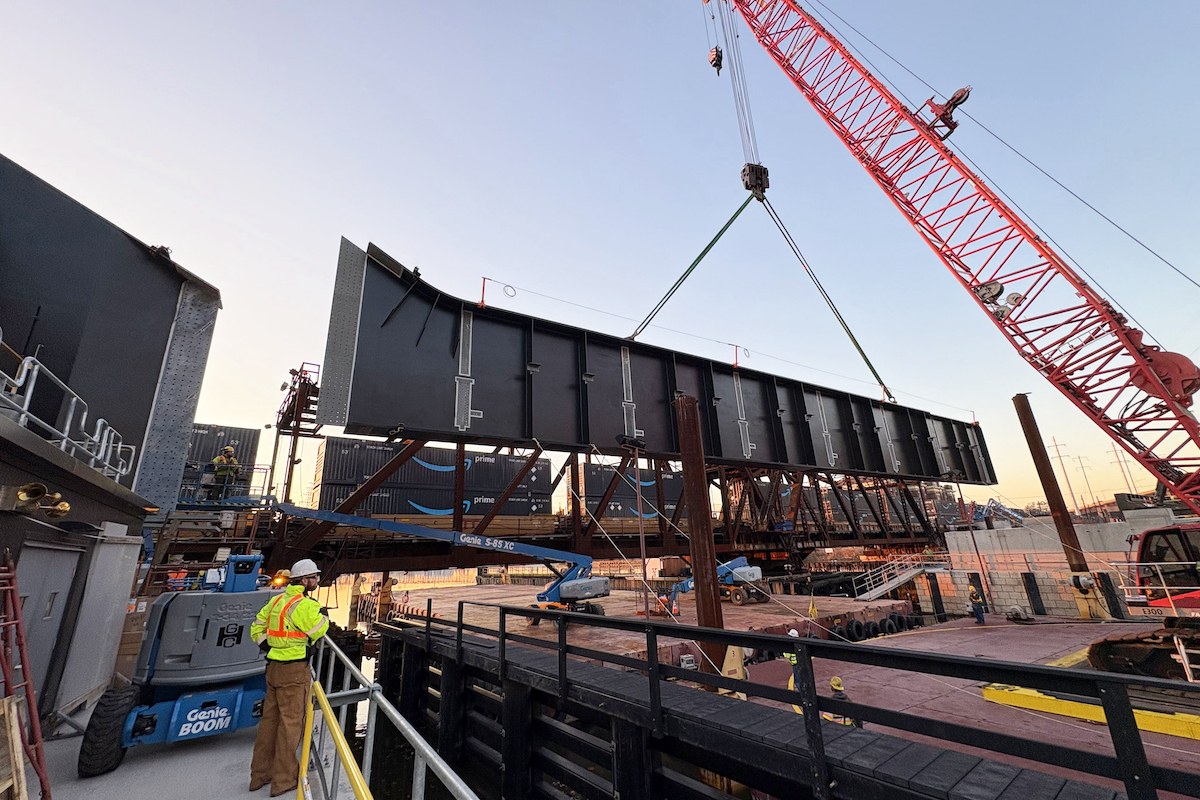“It’s a big project with a lot going on and a lot of coordination,” says Jason Hamilton, Project Manager for WVDOT.
The project entails widening about five miles of I-64 – built in 1966 – from two lanes in each direction to three lanes in each direction, rebuilding the interchange at St. Albans, and constructing a new bridge over the Kanawha River. About 70,000 vehicles drive on this section of interstate near Charleston daily. The department noted an increase in collisions in the corridor.
WVDOT divided the project into five phases. Brayman Construction & Trumbull, A Joint Venture (BTJV) is a partnership between Brayman Construction headquartered in Saxonburg, Pennsylvania, and PJ Dick –Trumbull Corp. of Pittsburgh, Pennsylvania. The joint venture received the design-build contract from WVDOT. The two companies have worked together on other projects. HDR of Omaha, Nebraska, serves as the design partner.
“This project has a large number of challenges associated with it,” says Tom Hesmond, Senior Project Manager for Brayman. “The multiple structures on the project cross various local and state routes, two different railroads and a navigable waterway.”

| Your local Trimble Construction Division dealer |
|---|
| SITECH Allegheny |
| SITECH Northeast |
The department opted for the design-build delivery method to speed construction and allow for innovation from the joint venture team.
“With design-build, you can get people who see things from a different angle who can come up with something the owner didn’t think was feasible or a good option,” Hamilton says.
For example, the joint venture suggested using a Gravix precast wall system for retaining walls in areas with tight right-of-way limits. It eliminated the need for a dirt slope.
“The Gravix wall system was more economical to construct on this project than the other options available,” Hesmond says. “Due to its unique design, it required less purchased backfill material, allowing us to use more on-site material, and it was much quicker to construct.”
Funding for the project came from the state’s $2.8 billion Roads to Prosperity program, which includes three types of bonds – the Grant Anticipation Revenue Vehicle Bonds, general obligation bonds and West Virginia Turnpike bonds. The legislature passed the “Roads to Prosperity Amendment” in 2017. Voters approved it in October of that year.
“There are multiple utilities, both public and private, that interface with the project that had to be relocated or designed around to accommodate them,” Hesmond says.
Crews started widening I-64 westbound from the Bills Creek Road Bridge to the Nitro Bridge, constructing a new I-64 westbound river bridge and reconstructing the St. Albans interchange with I-64.
The two new bridges at the St. Albans interchange and the Bills Creek overpass above I-64 opened in December 2021. The interchange required blasting more than 100,000 cubic yards of material to create space for the new ramps, including a flyover, which eliminated conflict points. Originally, it required entering traffic to wait until exiting traffic moved through the interchange.
The new wider, westbound bridge, named the Nitro WWI Memorial Bridge, over the Kanawha River opened in October 2022. It currently carries both east- and westbound traffic as work continues on the eastbound bridge. The westbound bridge at Rocky Step Road also has opened to traffic. “We’ve made a lot of progress,” Hamilton reports.
“Brayman-Trumbull JV has worked hard to minimize the impact to the traveling public while constructing this complex design-build project,” Hesmond says.
Crews demolished the existing bridge, including the 120-foot-long center section. “We lowered the center section of the old bridge onto barges using strand jacks,” Hesmond says. “Then we removed the remaining structure in large chunks using our Manitowoc 888 Ringer Crane on a custom-built barge.”
The team connected the new center section’s five steel-plate girders together at a location down river and brought it by barge to the bridge. The team employed a VSL hydraulic strand lifting system to lift it into place. Then crews anchored it place.
“This was done for a few reasons,” Hesmond explains. “First, it was safer to construct a portion at ground level and strand jack it into place. This allowed our crews to complete a significant portion of the work without the added risk of working at heights. Second, due to the long-span, additional large cranes would have been needed to construct the girders conventionally. Finally, the strand jack operation only required two days of river closure per phase, westbound and eastbound. If we had conventionally erected the girders we would have had a significantly larger impact to both commercial and pleasure boat traffic on the waterway.”
That center section was 418 feet long, 11 feet tall and weighed 3 million pounds. Subcontractor Structural Technologies of Columbia, Maryland, lifted the span 80 feet up and into place. The girders increase in height to 15 feet at the two drilled-shaft river piers, with crash walls. Three individual columns join together to form a pier cap.
Crews are rehabilitating the existing river bridge piers, so they can be used to support the slab-on-girder eastbound bridge. Work takes place off barges. Crews use a barge-mounted Ringer crane. BTJV also has placed cranes along the riverbank. Working on the river has required close coordination with the U.S. Army Corps of Engineers, the U.S. Coast Guard, and the West Virginia Department of Environmental Protection.
Crews are replacing the bridge at McCloud Road with a three-sided arch structure, after demolishing the old bridge. While the bridge work takes place, crews continue to widen I-64. Crews first work on median drainage before widening into the median as well as the outside. They are paving with asphalt. The original 1960s highway had concrete pavement. The team is rubblizing that concrete to use it as a subbase for the rebuilt highway. It’s inadvisable to pave over existing concrete paving, because it will lead to cracking.
This fall, crews will widen WV Route 817, a road that runs beneath and ties into the St. Albans interchange.
The entire project is scheduled for completion in fall of 2024. “Brayman-Trumbull JV is excited and honored to deliver this signature project bringing the residents of West Virginia a safer and less congested highway,” Hesmond concludes.
Photos courtesy of the West Virginia Department of Transportation










